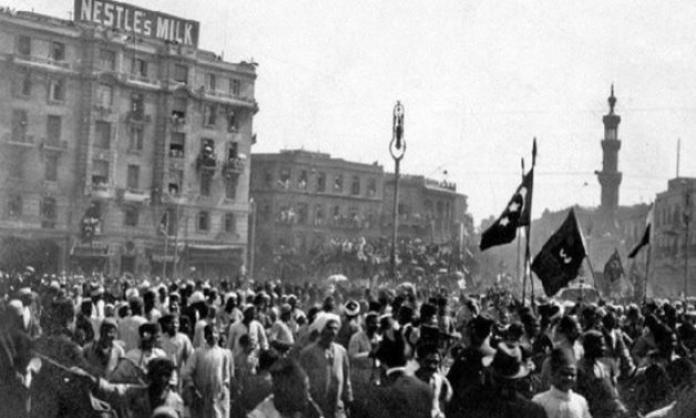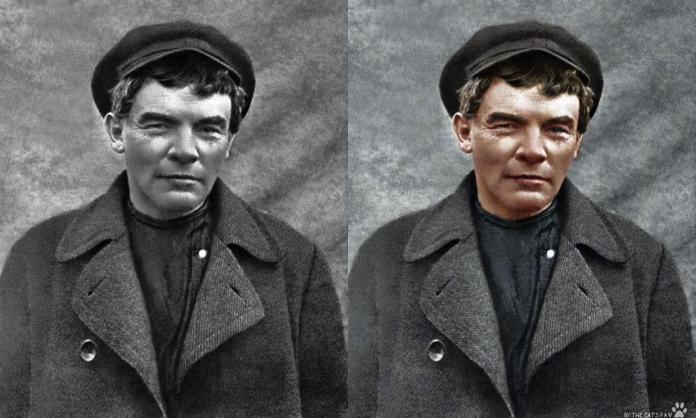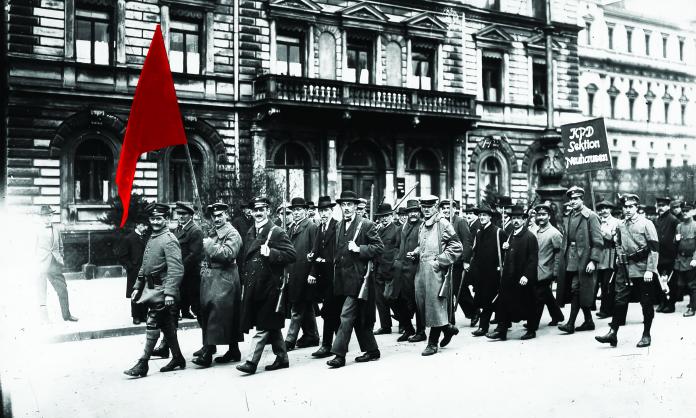The British political establishment is in its biggest crisis for more than a century. The country that has for many decades been a lynchpin of Western political stability, a pillar of Western imperialism, is now the source of instability that threatens to precipitate a broader political crisis well beyond its shores.
The Conservative Party, founded in the mid-19th century and having never experienced a split, is now tearing itself apart. The party leader who took them to victory in the 2015 general election, David Cameron, stood down barely a year after forming majority government. His replacement, Theresa May, having lost the support of her backbenchers, has said that she will also stand down before the next general election. She could well go sooner than that.
The catalyst for the crisis is the June 2016 Brexit vote and the government’s failure to force through parliament a deal that will prevent Britain crashing out of the European Union on 29 March. Such a hard exit from the EU could have disastrous consequences.
Britain and the EU
To understand the crisis, we need to understand Britain’s vexed relationship with the EU over many decades. With the collapse of the British Empire in the 1940s and 1950s, the ruling class realised that it would have to orient to Europe if it were to remain a global power. In 1973, Britain joined the Common Market, as the EU was then called, with the decision supported in a referendum by 2:1. From that point on, British capitalism became increasingly integrated with the EU.
But Britain tried as much as possible to keep some distance from full engagement with Europe. It was not just Tory backwoodsmen nostalgic for the empire who objected to participation in the free trade bloc. The ruling class strongly favoured membership, but on terms that would not undermine the economic and military foundations of Britain’s imperial power.
Compared to other big European economies, Britain engaged in significant trade and investment outside the EU, in particular with the US, with the country’s old dominions Australia, New Zealand, and Canada, and with Hong Kong, Singapore and Malaysia. The City of London, by the 1990s Britain’s most significant industry, was the financial centre of the world. The ruling class was therefore opposed to anything that, by subordinating British industry to EU regulations, might jeopardise Britain’s economic strengths.
The same approach applied to British military and diplomatic positioning. Central to British imperialism was its “special relationship” with the US. Britain no longer ruled the waves, but as the most trusted international partner of the US, it could punch above its weight. The EU could never offer the British ruling class such an important military partnership, dependent as it was on the US nuclear umbrella and US bases.
The British ruling class therefore sought to accrue all the gains of EU membership, with access to markets of hundreds of millions of people, while retaining significant autonomy.
EU IMPERIALIST PROJECT
In the first three decades of its existence, the EU expanded to incorporate more members, from the original six to 12. It grew with the encouragement of the US, which viewed it as an economic counterpart to the US-led NATO. The EU was both a big and growing market for US multinationals and an advertisement for the benefits of “free market capitalism” in the US’s contest with the USSR. Britain’s entry into the EU in 1973 was a definite plus for the US as it ensured that America’s chief ally was now an important player in European councils.
As the EU grew, however, so did the ambitions of its biggest powers, Germany and France. They began to view the EU as a vehicle to maximise their power globally, to project the EU as an economic powerhouse to rival the US and Japan. But to do that, the EU needed giant companies that could go toe to toe with their global rivals. That meant promoting European monopolies, with the more successful or ruthless companies gobbling up the smaller companies in electronics, energy, insurance, automotive, chemicals, power and other industries.
To develop Euro-champions, the EU had to remove regulatory barriers to the creation of such companies. That was the basis of the 1991 Maastricht Treaty, which committed to four freedoms of movement – for capital, goods, services and people. These four freedoms, the core of the European Single Market, lie at the heart of the neoliberal project that is the EU today. The introduction of the euro in 1999 was another step down this road.
German businesses seized the opportunity to drive down wages and conditions at home and to build their size and geographic spread abroad. With the admission of Central and Eastern European countries to the EU in the 2000s, important outlets for German exports and production sites for its factories, Germany became the undisputed powerhouse of Europe.
The British ruling class also took advantage of the Maastricht Treaty’s “four freedoms”, with British businesses entering new markets, exploiting new sources of labour and raw materials, and profiting from new investment opportunities. But it retained its traditional caution about some aspects of the EU integration project. It opposed the EU’s aspirations to create a rival political bloc to the US. The British government broke with France and Germany over the US invasion of Iraq in 2003 and opposed attempts by the EU to develop a military capacity independent of NATO. And the Blair government refused to adopt the euro, to ensure that British industry did not become hostage to decisions taken by the European Central Bank over monetary policy.
Under both Tory and Labour governments, Britain also “opted out” of a range of EU protocols that gave more power to the European Commission, the unelected body that is the closest the EU has to a governing committee.
The EU, keen to ensure that the continent’s second largest economy and global financial centre remained part of the trade bloc, repeatedly conceded to Britain. The British ruling class got the best of both worlds: despite not being in the currency bloc, the City of London became the main clearing house for European business in the 2000s and the European base of many transnational corporations and banks.
Domestic politics
During the 1980s, the Labour Party and the trade union leaders shed many of their reservations about the EU, which they had held at the time of entry in 1973. Mainly this was because the Labour Party was in the process of adopting the same neoliberal project that came to dominate in the EU.
But many in the party and the trade union bureaucracy also began to view the EU as a champion of labour, social and environmental protections. With Labour and the unions lurching to the right after the defeat of the coalminers’ strike 1984, the argument that the only way to defend the working class was by looking to the EU became influential. By the time of the Blair and Brown governments of 1997-2010, the Labour Party had become a more enthusiastic champion of the EU than the Tories.
The Conservatives, however, suffered continuing divisions over the EU. The party had always been split between Europhiles and Eurosceptics. The former, representatives of big business, saw in Europe huge business opportunities and understood that for Britain, going it alone was simply not viable. They supported the Maastricht Treaty, signed by Tory prime minister John Major. The latter faction, Little Englanders, resisted the tendency toward growing involvement in the EU and resented every step toward integration. They hated Maastricht, seeing in it a betrayal of Tory values.
Over time, the Eurosceptic representation on Tory benches grew. The Eurosceptics were energised by an old, white, middle class and racist party membership overwhelmingly hostile to the EU, in particular to the free movement of labour, and had been fired up by Margaret Thatcher’s reign in the 1980s.
Tensions within the Tories grew with the emergence of the UK Independence Party (UKIP). Founded to fight for British exit from the EU, UKIP scored close to a million votes at the 2010 general election and 4 million votes in 2015, 12 percent of the total, predominantly from former Conservative voters. Only Britain’s first past the post electoral system prevented the party from nabbing dozens of Tory seats. Several Tory MPs defected to UKIP.
To appease the Eurosceptics in the party and to prevent more Tory voters shifting to UKIP, leader David Cameron promised in 2015 to hold a referendum on the EU, expecting a resounding vote to remain in the EU, discrediting his Eurosceptic opponents. The strategy backfired. The June 2016 Brexit referendum, which resulted in a 52 percent vote for Leave, has now precipitated the biggest crisis in the party’s history.
Corbyn and Labour
On the other side of the parliamentary chamber, the Labour Party is also deeply divided. Jeremy Corbyn faces a caucus majority who have no love for him and who are tolerating him only because the party membership voted by a big majority, twice, to support him as leader. And although the two issues don’t match exactly, these same colleagues – right wing and centre left Blairites – are strongly pro-Remain. But so too are the majority of party members who supported Corbyn in the leadership contests. Corbyn’s opponents are trying to use the Brexit crisis as leverage to weaken and discredit the Labour leader.
Corbyn, historically hostile to the EU on a left wing basis but required by party policy during the 2016 referendum to advocate for Remain, is therefore under pressure from within the party and from trade union leaders to block Brexit, or at least to ensure passage of a bill that would retain most of the EU’s neoliberal agenda. But a significant number of Labour supporters, several million, voted Leave in 2016 and would be appalled to see the Labour leadership throw May a lifeline by stitching up a “soft Brexit”.
Both wings of the Brexit debate try to portray it as a fight between neoliberal cosmopolitanism (Remain) and nationalist populism (Leave). Any re-run of the Brexit referendum, an option now increasingly canvassed in Remain circles to reverse the 2016 decision, would only entrench the divisions. The majority of the political establishment would line up behind Remain, leaving only the hard right in and outside the Tory party to champion the cause of Leave. Either referendum outcome would only enhance the hard right’s claims to be the voice of the voiceless, the champion of those locked out by the political establishment. The left and the working class cannot win in these circumstances.
The notion that Brexit is simply a fight between socially liberal, anti-racist Remain camp and a reactionary and racist Leave camp is misleading. Anti-immigrant sentiment was a factor in the 2016 referendum for many Leave voters, two-thirds of whom had voted Conservative or UKIP at the 2015 general election. But there was more to it than that. Brexit, albeit in a very distorted way, was also a referendum on neoliberal austerity. The Leave vote was strongest among those who had been hardest hit by austerity: manual workers, pensioners, the unemployed and those on welfare, two-thirds of whom voted Leave.
The entire political establishment in Britain – the Tories, the Liberal Democrats, the BBC and all the “quality” press, every major business association, and the majority of Labour Party politicians and trade union leaders, all promoted Remain in 2016. An important motivation for many who voted Leave was their desire to register a protest against this same political establishment that had done them over for decades.
A working class solution
If the left and the working class movement is to go forward it must confront head on the pretensions of both sides in the debate: that Remain entails social liberalism, internationalism and defence of workers’ rights through the EU, and that Leave entails ensuring job security for British workers by “kicking out the immigrants”.
The EU is not an institution guarding social, economic and human rights. It is run by undemocratic institutions that have intervened to toss out of office elected governments that do not do its bidding. It maintains a framework of laws and protocols that entrench free market rules that screw the working class and prevent any left wing government from nationalising industries. In recent years, it has imposed harsh austerity on Greece and Portugal. And it is responsible for Fortress Europe, which has resulted in thousands of refugees drowning in the Mediterranean
But leaving under the terms being canvassed will do nothing to help British workers; it will only give fuel to the hard right. Both sides are equally committed to forcing through more austerity and clamping down on the rights of migrants.
The best outcome in these circumstances for the left and the working class is a fresh election fought not on the basis of Remain or Leave but on the grounds of opposition to austerity. Jeremy Corbyn put it well in a speech on 9 January when he pointed to the common experience of workers in North London who voted Remain and those in the north of England who voted Leave. Both groups of workers, facing insecure work, low wages, rising debts, are up against it. They’re not against each other. The system, Corbyn argued, is not working for either of them. The system is the real cause of inequality and insecurity. “The real solution”, Corbyn said, “is to transform Britain to work in the interests of the vast majority by challenging the entrenched power of a privileged elite”.
That was well put, but for the most part the Labour leadership, including Corbyn and his allies, have not aggressively put their case in this way. Nor have they done anything to promote mass working class mobilisations against austerity and cuts that could shift the current debate and force an incoming Labour government to pursue an anti-austerity agenda. The unions are still a force to be reckoned with when they mobilise on the streets, and hundreds of thousands of people have joined the Labour Party under Corbyn’s leadership.
But neither of these forces has been called out by the union or party leaders. The result is that demonstrations to defend the National Health Service and public services have become much smaller and more infrequent in the past 18 months and workers have been reduced to passive spectators to parliamentary manoeuvres. Far from capitalising on the current Tory crisis, the Labour Party has therefore been unable to smash the government in the polls. The current passivity and parliamentary focus is also the best terrain for internal enemies to continue to white-ant Corbyn.
Further, Labour has backtracked on supporting immigrant rights. The party will not openly defend free movement of workers, and many party leaders and union officials, openly or implicitly, argue that immigrants are responsible for the desperate plight of many workers in Britain.
The Labour Party, therefore, needs to shift course dramatically if it is to drive the government out of office on an anti-austerity, anti-racist basis. The ruling class would of course strongly resist a Labour Party that ran an election campaign focusing on lifting workers’ living standards. Whether for Leave or Remain, big business will close ranks against the threat. It’s unlikely that a Corbyn-led government would have the will to resist – every social democratic government that has taken office in Europe in the past three decades has capitulated to the capitalists and it’s unlikely that a Corbyn government, faced with a run on the pound and an investment strike throwing millions of workers onto the dole, would take the necessary measures to fight austerity. A new, left wing, revolutionary political leadership must be forged to fight for such a program.
Finally, there are international ramifications. The crisis in Britain is just one manifestation of the broader crisis of neoliberalism evident around the world since the global financial crisis of 2008-09. That is why a “no-deal” Brexit that would see Britain crash out of the EU could be the straw that breaks the camel’s back for the world economy, already slowing down and under threat from trade wars. A fresh global economic crisis could follow.
On the other side of the equation, a successful pushback against austerity in Britain could link up with the protests currently rippling through Europe, from the Yellow Vests in France to the mass mobilisations against the Orban government’s “slave laws” in Hungary. It is not just workers in Britain who have suffered austerity; across Europe workers’ living standards have been squeezed for more than a decade. A fightback against austerity in Britain that took up the question of migrant rights could also lay the basis for an international fight against attempts by the racist right, from Trump in the US to Le Pen in France and Kurz in Austria, to steer workers’ resentment of government cutbacks towards hostility to immigrants.
If the capitalists can cooperate internationally to foist austerity on us, our side too can organise internationally to resist their agenda. And that requires organisation. Having imposed austerity for decades, the old social democratic parties have proved their worthlessness to the working class and are now collapsing across the continent. New socialist parties are needed to take their place and to fight for working class interests across Europe.











